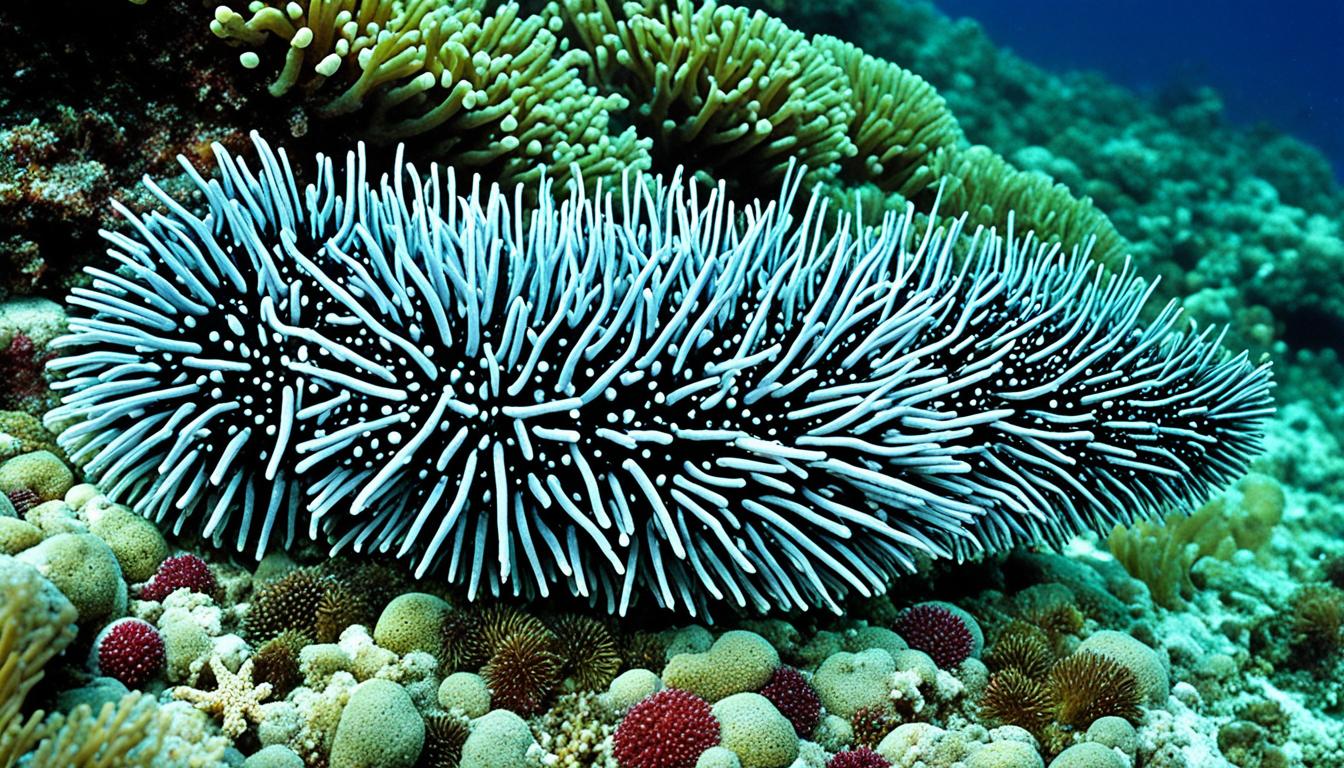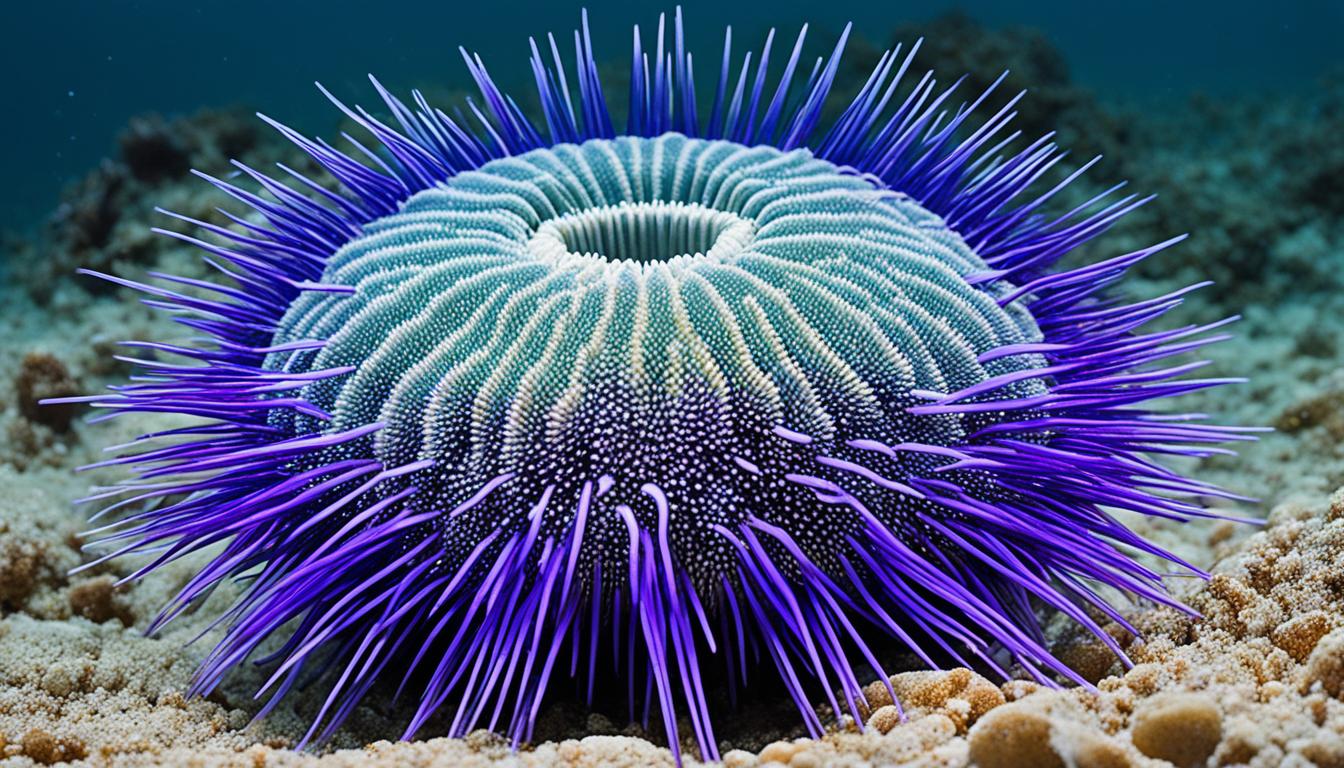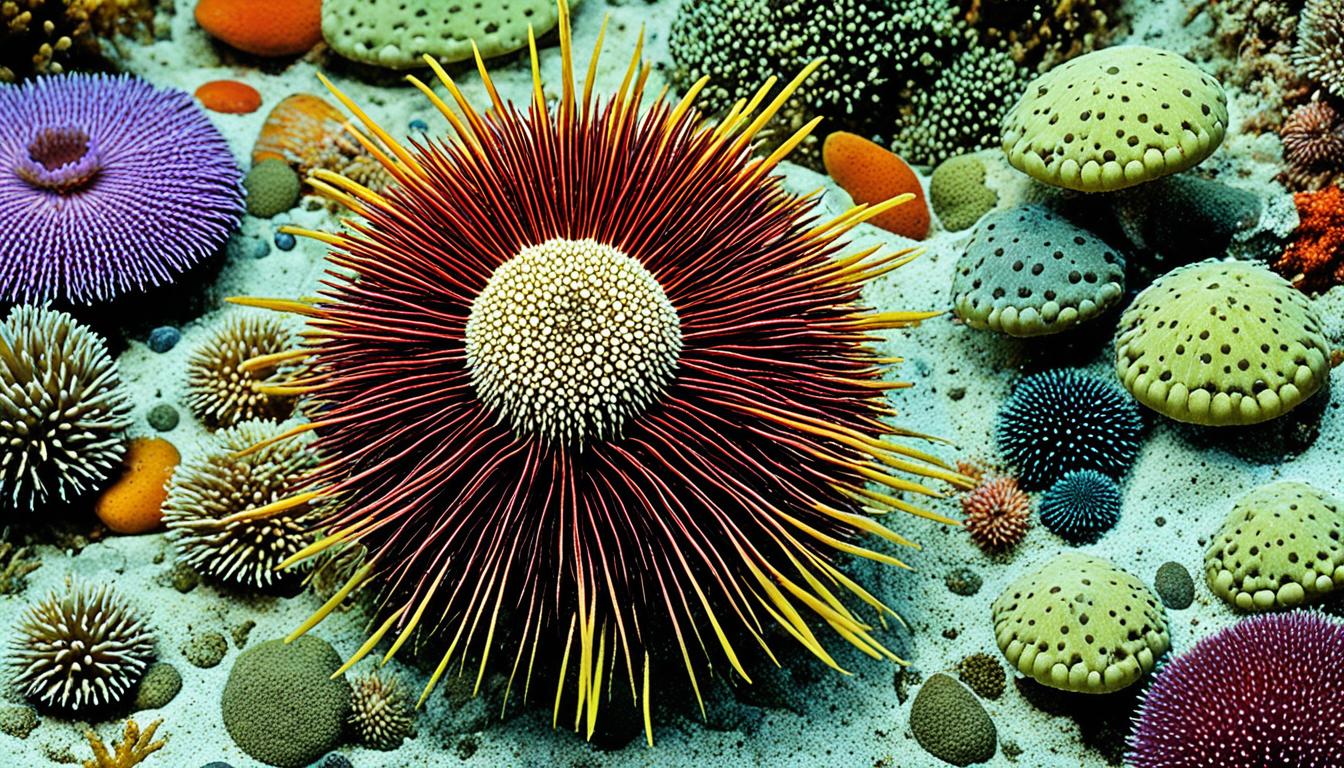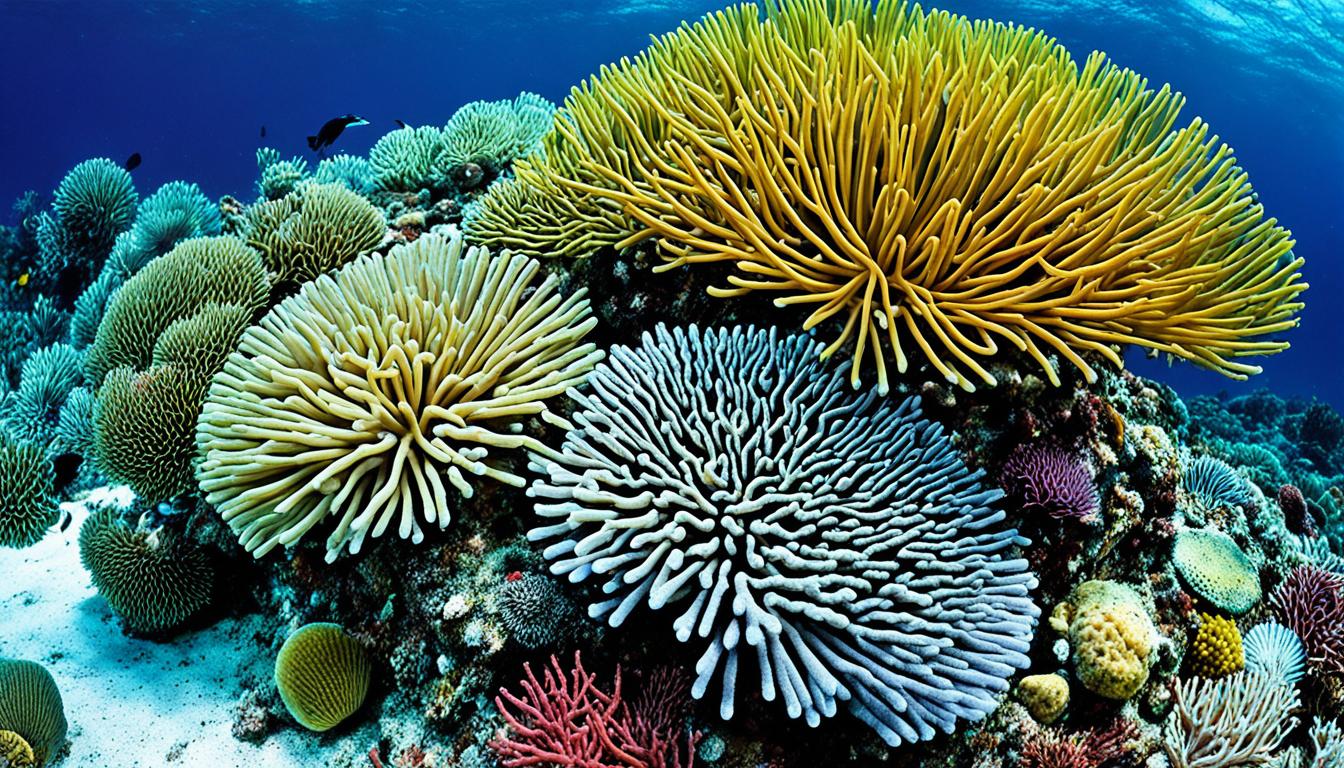Sea cucumbers are key players in marine ecosystems, but their importance often goes unnoticed. You might ask, what role do sea cucumbers play in these underwater worlds? These creatures are vital, helping to keep ocean habitats healthy. They improve sediment quality and help cycle nutrients, which is crucial for life in the sea.
This article will explore how sea cucumbers affect marine ecosystems. We’ll see how they boost biodiversity and act as bioremediators. By understanding their ecological role, we’ll see how these creatures are essential for the balance of marine life. This is especially true in coral reefs and areas with sediment.
The Ecological Role of Sea Cucumbers
Sea cucumbers are key players in marine ecosystems. They help with bioturbation, which is important for sediment health. By digging into the ocean floor, they bring oxygen to deeper layers. This creates a home for many marine creatures.
Bioturbation and Sediment Health
Sea cucumbers move around, changing the sediment. They mix different layers, making nutrients available to more creatures. This stops harmful substances from building up and keeps the sediment health good. This helps many marine species grow, making the ecosystem stronger.
Nutrient Cycling and Release
Sea cucumbers also play a big part in nutrient cycling. They eat organic stuff on the ocean floor and then release nutrients like nitrogen and phosphorus. This makes the water better for plants and corals that need these nutrients. In short, sea cucumbers act as nutrient banks, keeping the marine world productive.
How do sea cucumbers impact marine ecosystems?
Sea cucumbers are key players in marine ecosystems. They form symbiotic relationships with many marine creatures. These relationships highlight their big role in marine biodiversity and ocean health.
Symbiotic Relationships with Other Marine Species
These echinoderms are vital for many small creatures. They provide homes and help with nutrient exchange. This boosts the health and survival of plants and animals.
- Provide food sources for smaller marine species
- Create habitats for various organisms, enhancing marine biodiversity
- Influence nutrient cycling, which is vital for ocean health
Contribution to Marine Biodiversity
Sea cucumbers boost marine biodiversity. They make the ocean floor healthier, which means more species can live there. Studies show that places with sea cucumbers have more species. This diversity supports different food chains and keeps the ocean balanced.
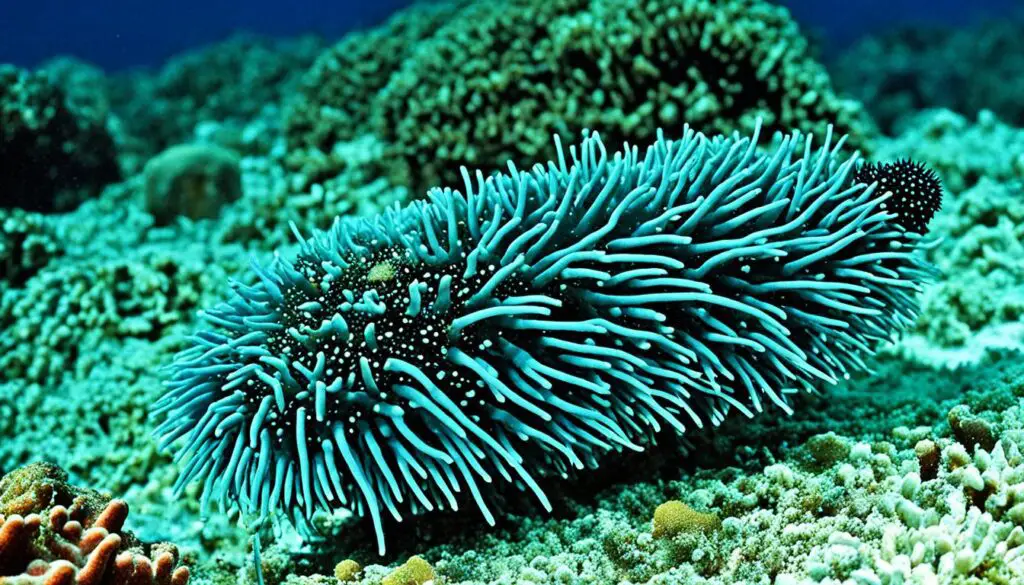
| Impact Area | Sea Cucumber Role | Result |
|---|---|---|
| Habitat Creation | Provides food and shelter for marine organisms | Increases species diversity |
| Nutrient Cycling | Enhances sediment quality through bioturbation | Supports various marine life forms |
| Food Web Dynamics | Serves as a food source for higher predators | Contributes to the stability of marine ecosystems |
Sea Cucumbers as Bioremediators
Sea cucumbers are key to keeping the ocean healthy. They help manage organic loads in the ocean. By breaking down organic materials, they keep marine environments healthy, especially coral reefs.
Reduction of Organic Loads
Sea cucumbers eat and process organic matter on the ocean floor. This turns harmful waste into nutrients that help other sea creatures. Their actions clean the ocean floor and improve nutrient levels, making the underwater world more lively.
Support for Coral Reef Health
Sea cucumbers help coral reefs stay healthy. They keep the reefs from being buried under too much sediment. Studies show that by controlling sediment, sea cucumbers make coral reefs more resilient to climate change and ocean acidification.
Sea Cucumbers in Coral Reef Ecosystems
Sea cucumbers are key players in coral reef ecosystems. They help by aerating the sediment through their diet. This process spreads important nutrients, boosting the health of the ecosystem.
By eating sediments, sea cucumbers make life better for many creatures living on the reef. This supports a strong underwater community. It’s essential for keeping coral reefs healthy.
Aeration of Sediment
Sea cucumbers are important for sediment aeration. They burrow and feed, mixing sediments. This action spreads oxygen and nutrients to other creatures.
This helps corals and other marine life thrive. It also stops harmful algal blooms. This keeps the reef safe and stable.
Impact on Coral Disease Prevention
Sea cucumbers also help prevent coral diseases. Corals with sea cucumbers are more resistant to diseases. This shows how vital sea cucumbers are for reef health.
If sea cucumbers are removed, corals become more vulnerable to diseases. This can harm the entire reef ecosystem and its biodiversity. Protecting sea cucumbers is key to keeping marine life and ecosystems healthy.

